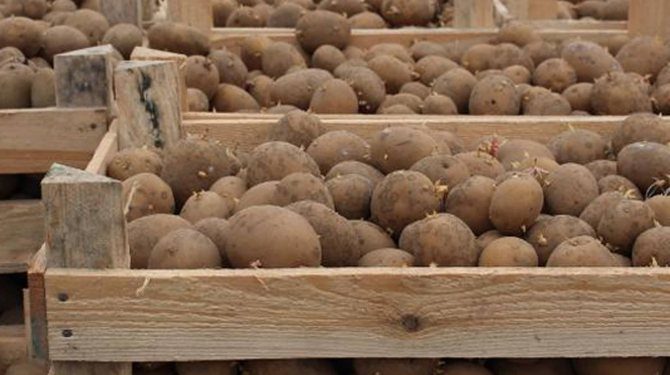#PotatoProduction #AgriculturalInnovation #ProcessingContracts #FarmEfficiency #MarketTrends
In an era of dynamic agricultural landscapes, potato growers face both opportunities and challenges. As Northern Europe’s influence continues to impact the UK market, farmers and agricultural experts find themselves at a crossroads. This article delves into the latest data and expert insights, exploring innovative strategies to enhance potato production, cope with market pressures, and sustain the industry’s growth.
In late 2018, the Northern European Potato Growers group revealed a significant spike of 14% in North European production compared to the previous year. While the quality remained reasonable, this surge posed challenges to the UK market already grappling with oversupply. According to Jay Wootton, Director at Andersons, the weakening pound and the superior cost efficiency of mainland European production intensified the competition. To navigate this landscape, farmers and agronomists must explore new avenues and embrace innovative techniques.
Processing Contracts: A Viable Option
Ware growers facing market uncertainties found solace in processing contracts. The shift from traditional ware farming to processing offered a potential lifeline. However, the decision-making process wasn’t straightforward. Economics, including the relative profitability of ware and processing, alongside the land’s productive capacity, became pivotal factors. To optimize this shift, farmers needed to carefully analyze their land, production costs, and market demands.
Whole-Crop Processing: A Complex Endeavor
The concept of whole-crop processing emerged as a promising yet intricate proposition. Utilizing more of the crop became a central objective throughout the supply chain. At the farm level, variations in crop grading were observed due to mechanization disparities and the quality of grading labor. Technical enhancements, from precise grading mechanisms to optimized harvester setups, became essential. Moreover, retaining access to Eastern European labor remained crucial for productivity, emphasizing the need for sustainable labor solutions.
Selecting the Right Land: A Game-Changer
Amidst evolving market dynamics, selecting the appropriate land emerged as the linchpin for efficiency gains. The right choice of land facilitated optimal potato growth and streamlined harvest processes, ensuring maximum crop utilization. Strategic land selection minimized wastage and maximized profits, underlining the significance of informed decision-making in the agricultural sector.
In the face of a competitive market influenced by Northern Europe’s production surge, potato growers found themselves exploring innovative pathways. Processing contracts offered a viable strategy, though the complexities demanded careful evaluation. Whole-crop processing, coupled with technical advancements and labor management, emerged as crucial focal points. However, the pivotal factor remained strategic land selection, enabling farmers to harness the full potential of their crops.
As the industry marches forward, adapting to market fluctuations and embracing sustainable practices will be imperative. By integrating technological advancements, leveraging processing contracts, and emphasizing efficient land use, potato growers can not only overcome challenges but also thrive in a rapidly changing agricultural landscape.







